Singapore’s Anastasia Liew on what’s cooking at her famous Bengawan Solo bakery
- The founder of the Lion City’s best known maker of cakes and biscuits has gone from her kitchen counter to international success
- Known to her staff as ‘Lady Boss’, she discusses her long-held commitment to quality that helped the brand secure US$48 million in revenue last year
Kueh lapis, pandan chiffon cake and Nyonya kueh from Bengawan Solo. Photo: Dayu Zhang
Anastasia Liew is in her element in her central kitchen, wearing a monogrammed white overcoat, hair net and sturdy non-slip shoes.
The founder of Bengawan Solo –
’s best known maker of cakes, biscuits and the multicoloured sweet treats known as Nyonya kueh – has perfected the art of management by walking about.
“There is no day off for me,” Liew says, as she strides into the steaming hot kueh section.
First, she examines the day’s supply of coconuts and pandan leaves, which provide the distinct flavours and colour of her top-selling pandan chiffon cake,
.
The coconut kernels must be thick-fleshed to produce the creamiest milk. The pandan leaves of the screw pine plant must be the right shade of deep green.
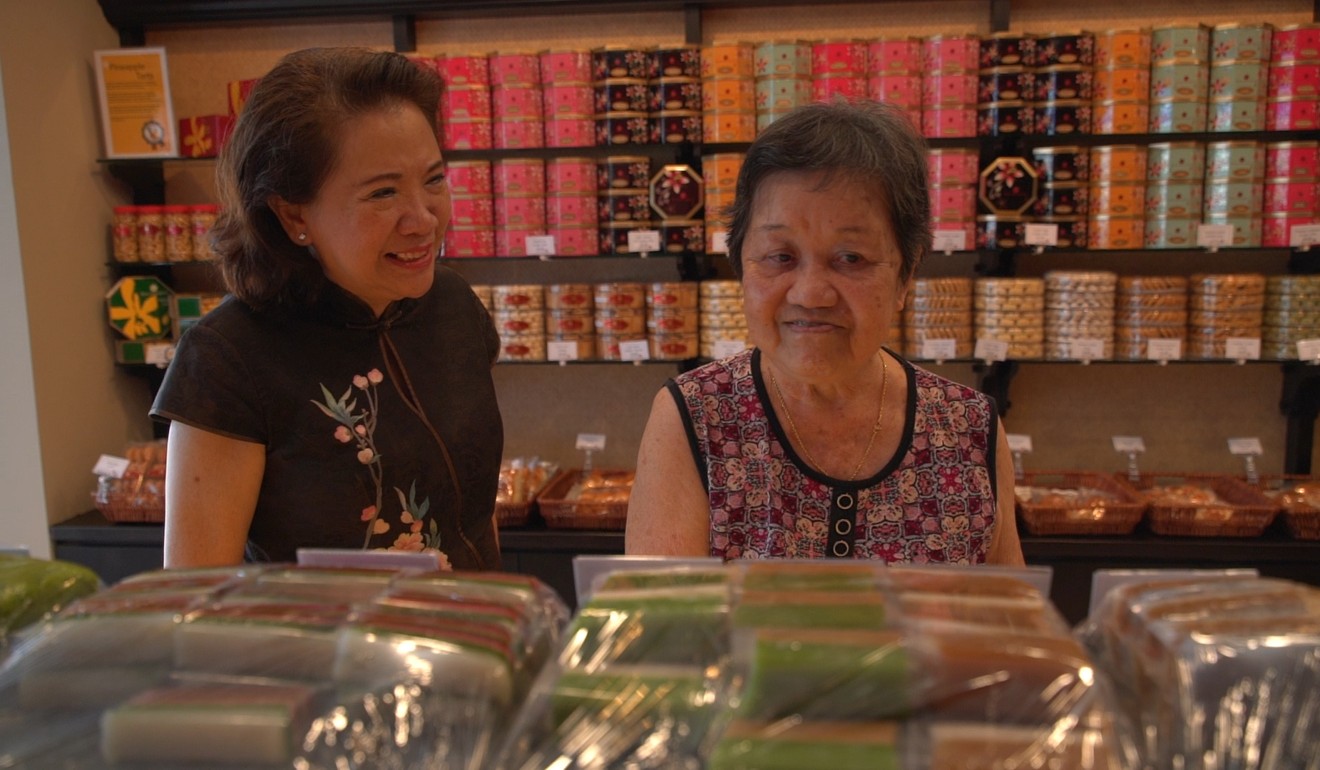
Bengawan Solo’s Anastasia Liew with a customer. Photo: Dayu Zhang
“My suppliers know I am very particular and they don’t ‘play-play’ with me,” Liew says. “I will reject the stock, return it all to them.”
Satisfied, she moves on, walking briskly from station to station. The kueh are made from sticky rice, rice flour, tapioca, sago and palm sugar, and many require rolling, moulding, filling and finishing by hand.
There is no day off for me
“I look at the size, the colour, the texture,” Liew says. “These are my recipes and I have made all these cakes myself. I can tell if there’s not enough coconut milk, if the colour is different, or the look is no good.”
Three women stand in a row, making ondeh-ondeh by hand. They fill balls of rice-and-sweet-potato dough with palm sugar and shape them into dumplings that are tossed into boiling water to cook, then rolled in freshly grated coconut.
Five seconds later, they are ready to be popped in your mouth for the blissful experience of a gooey dumpling bursting with molten brown sugar and rich pandan-coconut flavours.
Gong Liqiong, a 32-year-old from Jiangsu, China, is the picture of concentration as she works speedily, churning out 3,500 ondeh-ondeh every day.
“There is no other way to make this,” Liew says. “We tried doing it by machine, but the dough turned out rubbery.”
Employees describe her uncanny ability to merely glance at a batch of freshly made cakes and suspect something is not quite right.
“Cut it,” she will say. The flaw is exposed, the batch is rejected, the worker gets a tongue-lashing and everyone within earshot thinks the same thing: “You cannot hide anything from Lady Boss.”
Project manager Steven Chu Fu-Kong, 61, says: “If she looks at a cake and suspects something is wrong, she’ll be right. If she tastes something, she knows immediately what’s missing.”
Bengawan Solo is a 24/7 operation, with 45 outlets across Singapore. Its turnover of nearly S$65 million (US$48 million) last year was up from almost S$43 million in 2008.
The company has a shop at every terminal of Singapore’s Changi Airport, and its smart flagship store opened this year at Jewel, the airport’s new shopping and dining attraction showcasing some of the country’s best home-grown brands.
If [Anastasia] looks at a cake and suspects something is wrong, she’ll be right
These airport shops have allowed Bengawan Solo to tap into the multibillion-dollar food souvenir business, and they attract a steady stream of overseas visitors who come seeking “the green cake” – the famous pandan chiffon – as well as pineapple tarts and biscuits.
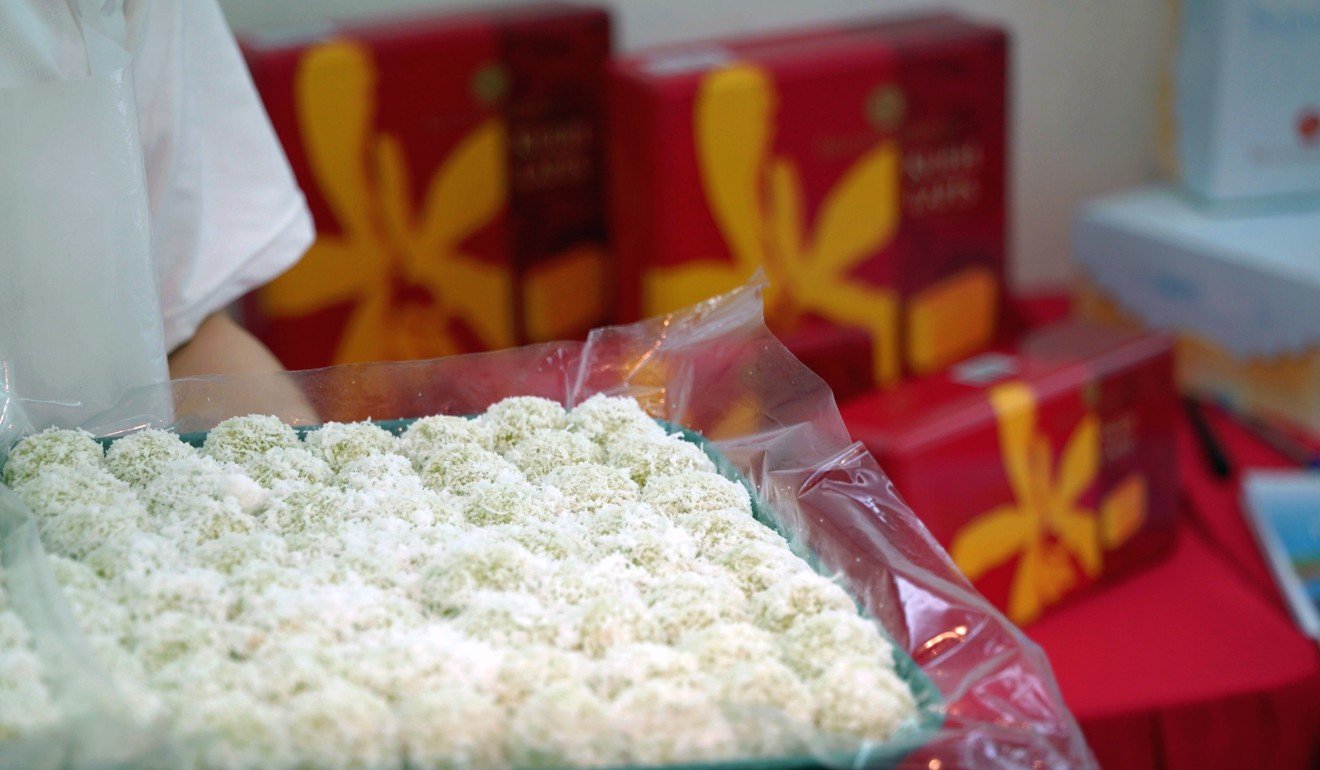
Many of Bengawan Solo’s traditional Nyonya kueh still have to be made by hand, including these ondeh-ondeh dumplings. Photo: Dayu Zhang
SWEET SUCCESS
Anastasia Liew, 72, may be Singapore’s Queen of Kueh, but there was a time when she was an immigrant housewife baking cakes to sell from the kitchen of her government-subsidised Housing Board flat.
Born in Sumatra,
, she arrived in the island nation in the early 1970s, met and married accounts executive Johnson Liew – 15 years older and also from Indonesia – and they had a daughter and a son.
Liew’s reputation as a cake-maker spread by word of mouth. When a couple of department stores started to stock her cakes, her kueh lapis (layer cake), butter cake, chocolate butter cake, pandan chiffon and banana cake became available on Orchard Road, Singapore’s main shopping area.
Then, in 1979, health inspectors showed up and told her it was illegal to make cakes at home for sale in shops. She had to quit or get proper premises.
She decided to rent a vacant shop in the block next to her Marine Terrace home, and named it Bengawan Solo, after the popular Indonesian folk song. “I wanted a name customers would find easy to remember,” Liew says.
A plain glass case displayed her five cakes, and people from the neighbourhood became regular customers. After some time, she began selling Nyonya kueh too.
Everything changed for Liew and Bengawan Solo two years later, when a story appeared in The Straits Times , Singapore’s main English-language newspaper. In that era before online influencers told people where to go, food-obsessed Singaporeans took their lead from the papers.
I wrote that story. I had recently moved to Marine Terrace and was wandering through the neighbourhood one day when a familiar fragrance stopped me. The aromas of pandan, coconut, cinnamon and cloves always combine unmistakably into a promise of deliciousness.
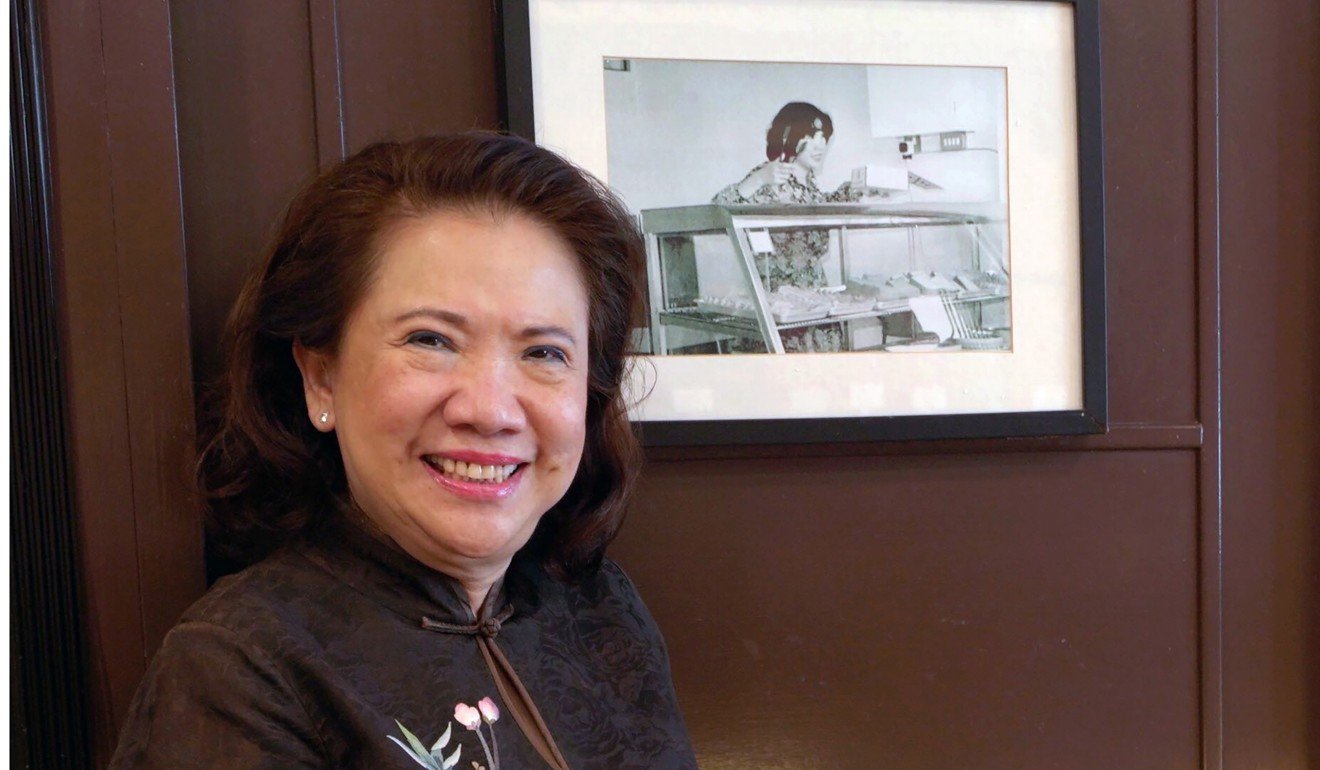
Anastasia Liew was a housewife with two young children when she opened her neighbourhood cake shop in Marine Terrace in 1979. Now she has 45 shops all over Singapore. Photo: Dayu Zhang
I found the shop, and everything looked wonderful. Johnson Liew stood smiling behind the counter and, at the back of the shop, his wife sat on a low stool in front of an oven.
“I must have been making kueh lapis,” Liew says. The Indonesian spiced cake needs 90 minutes to be baked, layer by tedious layer.
She remembers what happened the Sunday the story appeared: “People came from all over Singapore and were waiting outside the shop before we even opened. Everything sold out.”
Bengawan Solo was no longer just a neighbourhood shop. A second outlet followed on Orchard Road, then a third in the financial district. As new malls opened all over Singapore in the years that followed, owners wanted Bengawan Solo to be there.
Liew tells me: “Your story helped us a lot.”
A framed copy sits on a shelf in her boardroom, alongside her numerous awards and photographs of herself with prime ministers, presidents and other dignitaries.
I tell Liew the story may have led people to the shop, but she made sure they returned.
“If you didn’t maintain your quality, they would not have come back,” I say.
“I don’t just maintain quality,” she corrects me. “I improve it. I’m never satisfied.”
As business grew, Liew needed a central kitchen, but outgrew it and moved to bigger premises in Woodlands, in the north of Singapore. When that also became too small, she took over the factory space next door.
I don’t just maintain quality. I improve it. I’m never satisfied
Walking through the kitchen, she hands me a slice of kueh lapis fresh out of the oven and says: “Eat it while it’s warm.”
I start counting the layers and she holds her breath as I get to 16, 17 and 18, before reaching 19.
“Nineteen, OK!” she declares, triumphantly. “If only 15, 16, 17, cannot. This cake must be at least 18 layers.”
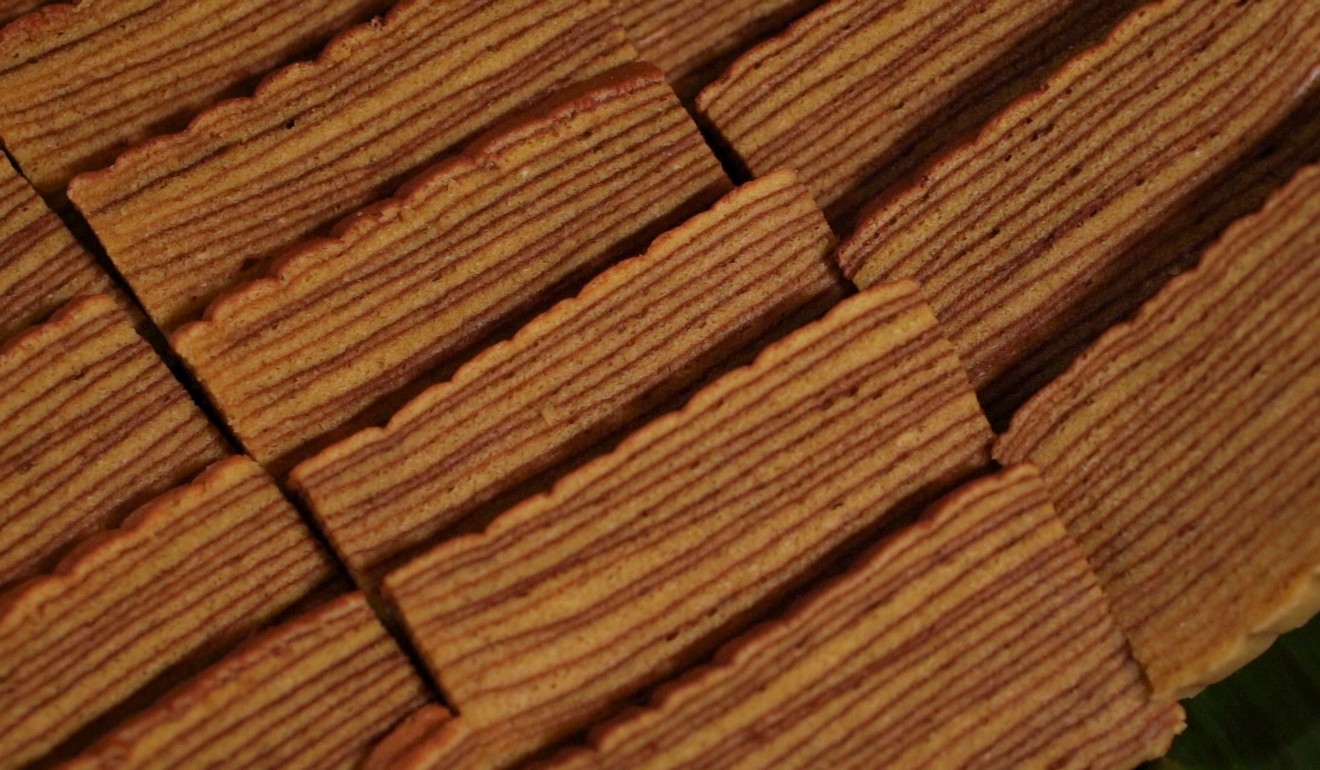
Bengawan Solo’s kueh lapis needs 90 minutes to be baked, layer by layer. Photo: Dayu Zhang
Baker Neo Seong Koon, 52, has worked at Bengawan Solo for 31 years and whips up hundreds of pandan chiffon cakes every day.
I ask if Lady Boss ever chides him while on her rounds, and he replies: “All the time!”
Liew laughs, then says she tells her workers the cakes must turn out as good as if she were still making them herself.
Despite plenty of competition, her pandan chiffon cake topped two blind taste tests conducted by The Straits Times in 2010 and 2017.
It is a hard cake to get right because it must be light and fluffy, yet firm, and moist with coconut milk which must not overwhelm the pandan flavour. It takes mere seconds to devour, and feels like there are no calories at all in a slice.
Singapore heritage food expert and cookbook writer Sylvia Tan, 72, says: “Factory-made Nyonya kueh is a contradiction in terms. The best cakes must be halus, finely made, impossible to achieve with machines, and the tastes are complex.
“But Anastasia’s cakes go beyond these limitations. They continue to hit the mark and are even better today than 40 years ago. Her kueh lapis is rich and even more fragrant with spice, her kueh salat [a cake made of pandan-flavoured coconut custard atop a bed of glutinous rice] creamier than before. I rely on her for my fix of nostalgia!”
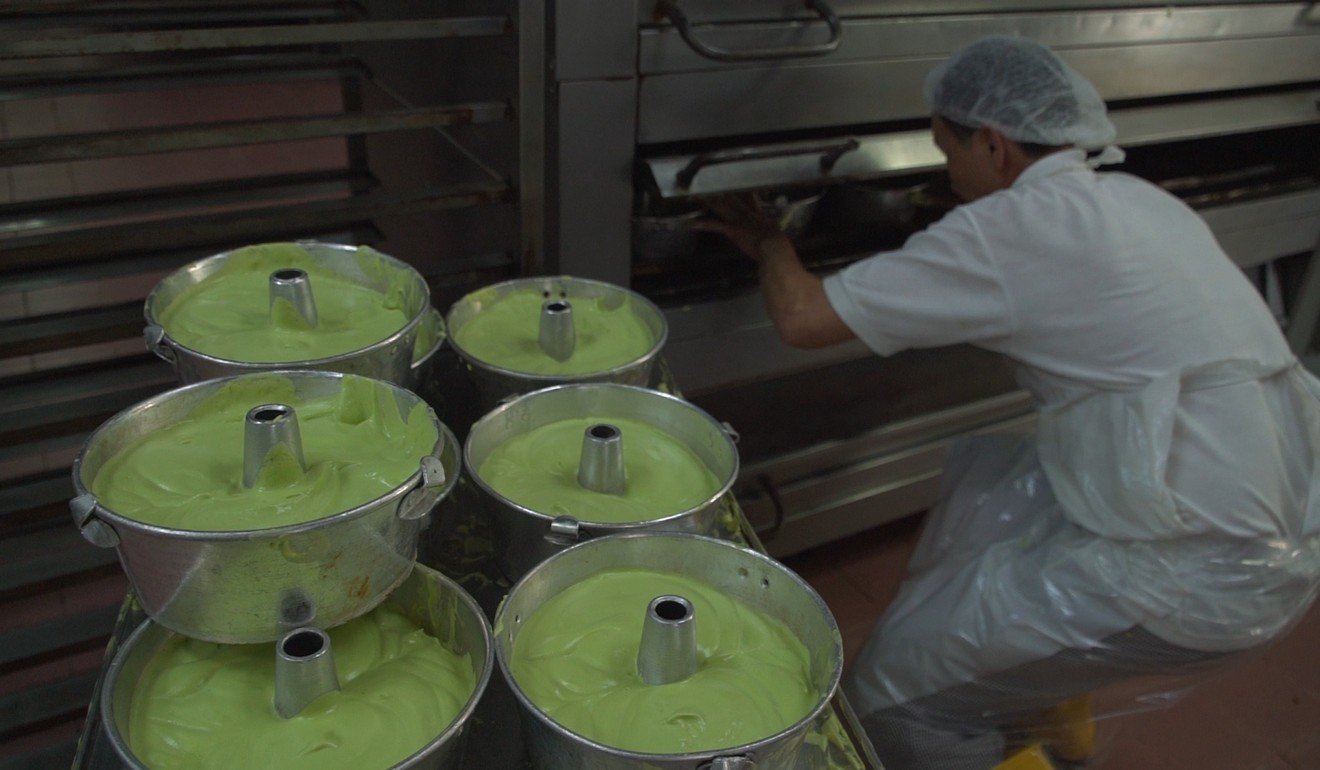
Pandan chiffon cakes being made at Bengawan Solo. Photo: Dayu Zhang
LADY BOSS, STILL IN CHARGE
Liew has established a household name, collected a string of business awards and, last year, was inducted into the Singapore Women’s Hall of Fame honouring women pioneers.
She may mention retirement, but that is not likely any day soon. She remains energised and in control of every aspect of the business.
“My customers like my cakes and kueh, and that motivates me to carry on,” Liew says. “I’m no more young, but I’ll work until I cannot work.”
She has resisted offers to buy the business, or to take the company regional. In many ways, Bengawan Solo is typical of successful family businesses led by a gifted, driven founder who keeps going, and it is hard to imagine anyone else at the helm.
Professor Annie Koh, who heads the Singapore Management University’s Business Families Institute which does research on Asian family businesses, says there are examples of transitions done well. “A product and brand must live beyond the founder, but still anchored with the right values set up with the passion and DNA of the founder,” she says.
For Liew, that means identifying her successor and preparing for the next lap. Her husband Johnson, now 87, has been by her side throughout. Daughter Rissa, 45, has little interest in the business, but son Henry, 40, joined the company after graduating from the National University of Singapore with a business degree.
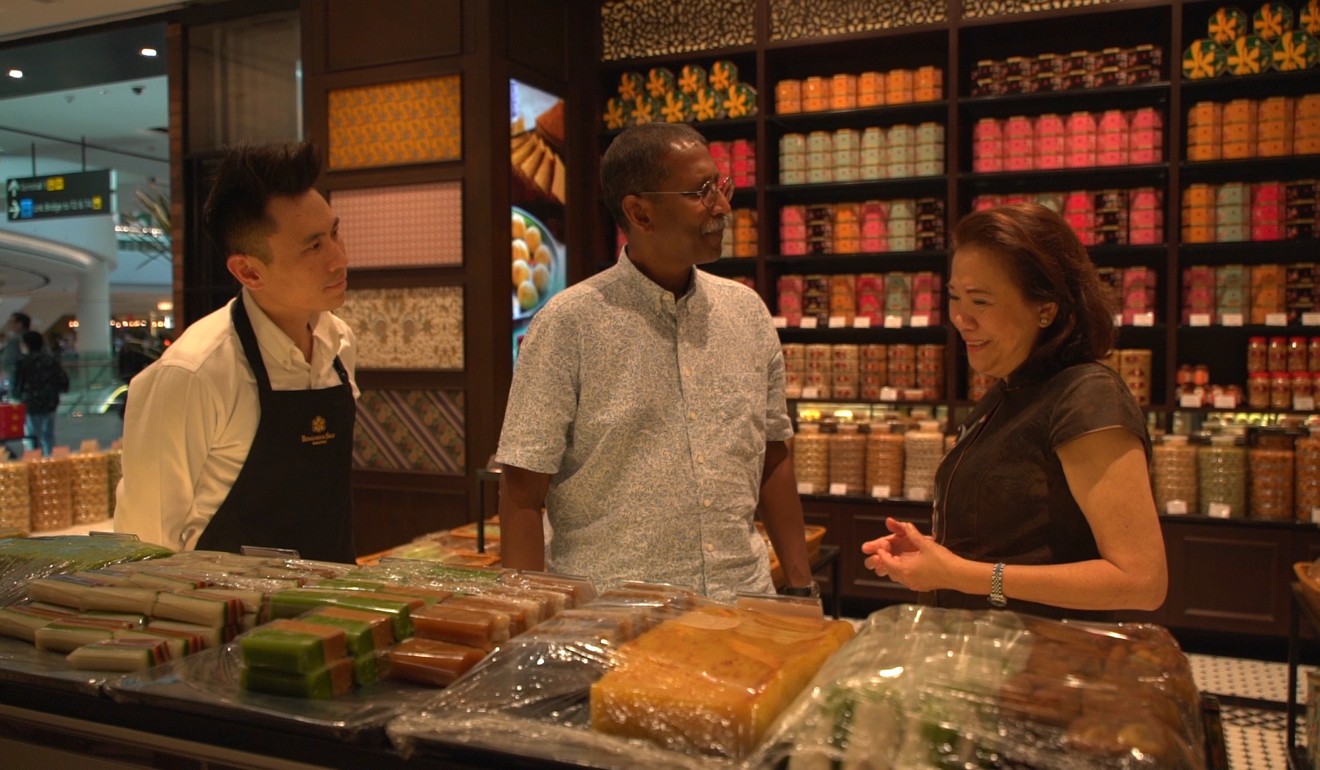
Anastasia Liew and son Henry Liew with journalist Alan John. Photo: Dayu Zhang
When he showed interest, Liew handed him her closely guarded recipes and told him to start making the cakes and kueh himself. He is adept at layering a kueh lapis, and has mastered some other items, including pineapple tarts.
Asked how he measures up, she says: “He’s OK-lah. He should practise some more.”
Henry concedes that his mother is a tough act to follow. “Bengawan Solo is her baby,” he says. “My mum has this business acumen, she’s naturally sharp. But as we grow, we should be open to new ideas, and different ways of doing things.”
He has added marketing innovations, and had a big hand in the concept and design of the flagship store at Changi Airport’s Jewel.
Coming up next are more offerings for customers looking for premium food gifts to take away from Singapore. Bengawan Solo will be adding assortment packs of biscuits and tarts, all individually wrapped.
Do mother and son ever have conversations about when she will hand over the business? Henry says with a laugh: “She’s still very active, she’s still running the business and I’m helping her. We’ll see how it goes.” ■
Anastasia’s recipe for success
FOLLOW YOUR HEART
“Whatever you do, do it with your heart.”
WORK HARD
“I’ve worked very hard. I always want to do my best.”
WOMEN WORK HARDER
“Women have to put in more effort because we have to care for our children and home as well as the business. You have to be patient and not give up.”
LEARN FROM EXPERIENCE
“I didn’t go to university and I’m not perfect, but I have many years of experience.”
BE TRUTHFUL
“In business you have to be sincere, honest and fair to your staff.”
MEET YOUR CUSTOMERS
Some complain that prices are higher than before, and she will tell them about the quality ingredients she uses. It is music to her ears when long-time customers say: “Your kueh still tastes like it is home-made.”
BE PRESENT
“There is no day off for me.” She checks on her kitchen seven days a week unless she is overseas. Things have to be done her way, no short cuts.
SCOLD THEM, SAYANG THEM
“I really scold the workers if they don’t do things properly. But I also sayangthem.”
Sayang in Malay conveys a mix of spoiling, loving and pitying. Among other things, she gives workers interest-free loans and is on standby for emergencies.
GUARD YOUR SECRETS
Her son Henry is the only person she trusts with her recipes. She became more careful after some former employees used her recipes to start their own business.
SORRY, NOT HALAL
Business from Muslims would grow with halal certification, but some recipes call for rum and Liew worries the cakes won’t taste the same without it. The shop’s labels indicate the items with alcohol.










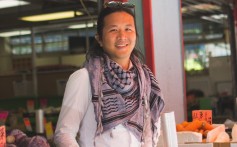
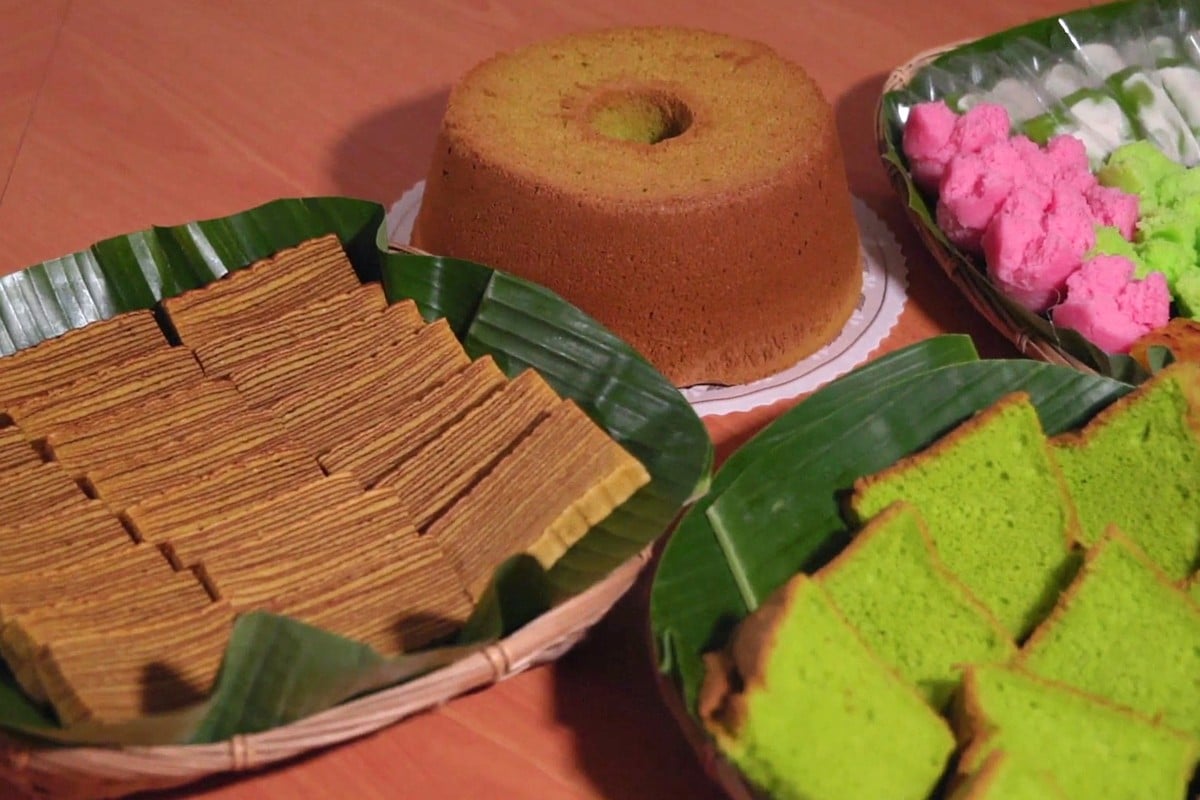
Comments